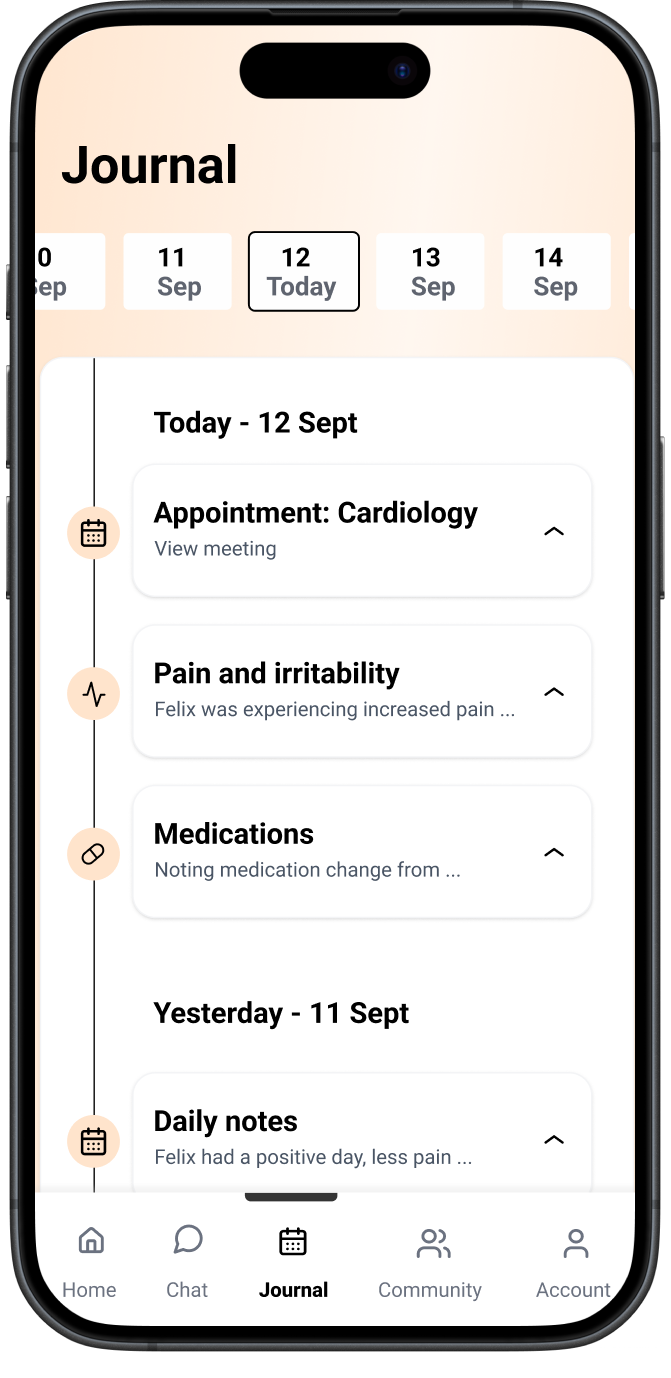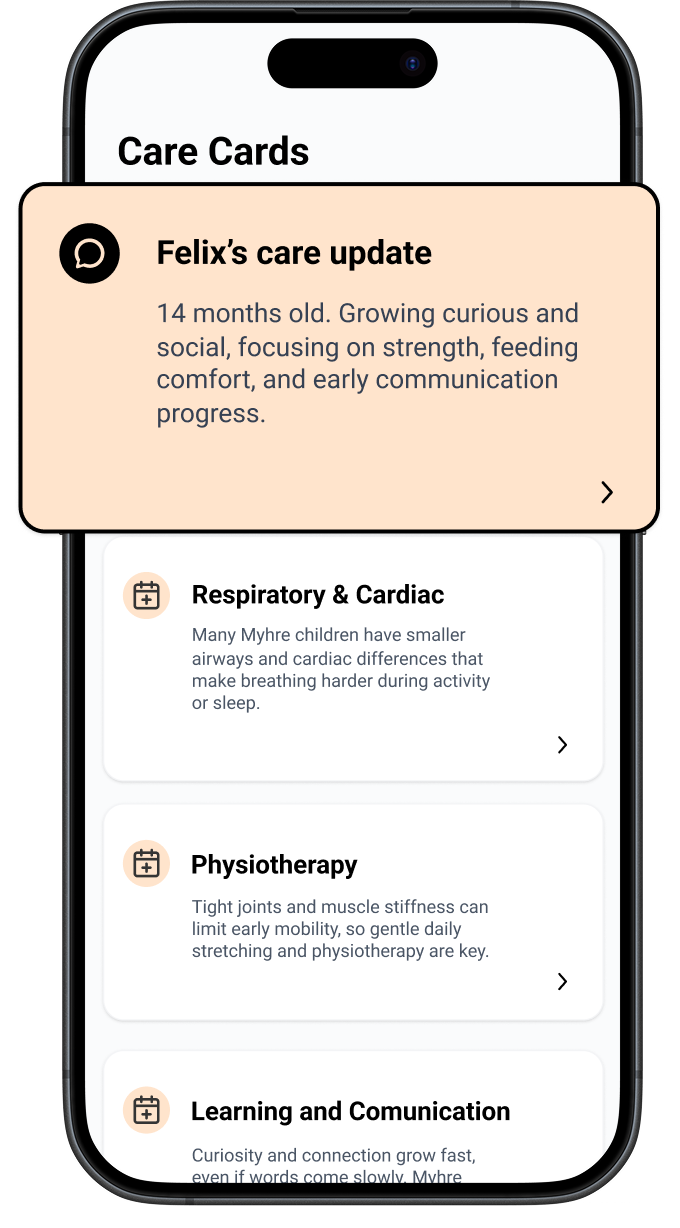Unlocking insights hidden in the rare disease community
Track, manage and discuss lived experiences to contribute to a smarter, more connected understanding of rare disease.
The rare disease burden no one sees,
but we understand
You become the expert
You are forced to research. You educate specialists who have never seen the disease. Correcting doctors and fighting systems that weren't built for this.
You wear the burden of admin
Spreadsheets, PDFs, portals, forms. Appointment after appointment. No system. No plan. Just you, keeping track.
You carry it alone
The fear. The decisions. The weight of getting it right. Everything feels life or death, and there's no one to check your work.
Share your journey, learn from others
We understand the limitations of published knowledge that comes with rare diseases, and seek to bridge the gap by harnessing the strength of community insights. Share stories, contribute to the community, and log your progress
Track, monitor, manage
Daily updates on medication, tracking, and appointment management is made easy. By keeping all up to date records and linking to your care team, our AI journey will provide proactive guidance so you feel empowered and prepared.

Search across all your data
Navigate your medical documents and compare against a library of published literature and community insights with AI.
Understand complex literature
RareJourney takes the complexity out of medical literature, providing plain explanations about the things important to you. Care Cards provide summaries of care guidance that are most relevant for you at any time, meaning you can understand your journey.

What our supporters say
Hear from families and healthcare professionals who are helping shape the future of rare disease care.
“We see a massive potential in this. The rare disease space is neglected because individually they are small”
Armelle
Chief Scientific Officer, Myhre Foundation
“It's a huge mental health benefit... everything in one place. I don't feel as scattered going into appointments”
Haley
Adult living with rare disease
“We (cardiologists) have spoken about how important it is to get the experiential data”
Anni
Clinical Nurse Consultant, Cardiology
The invisible crisis
Collectively rare diseases are not rare: Although individually rare, the collective number of people affected by rare disease is equivalent to the population of the world's third largest country.
References
A look at the story
Co-founders, husband and wife, and parents of Felix tell their story about how Rare Journey can help families manage complex rare diseases.
Join our journey
Join Beta
Express your interest in beta testing RareJourney. Help shape the future of rare disease management by testing early features and providing feedback that directly influences product development.
Join BetaContact us
If you are interested in the app, working with us, or have questions, please get in contact. We are actively seeking collaborations with rare disease communities or organisations. We are also open to fund raising conversations.
Contact us